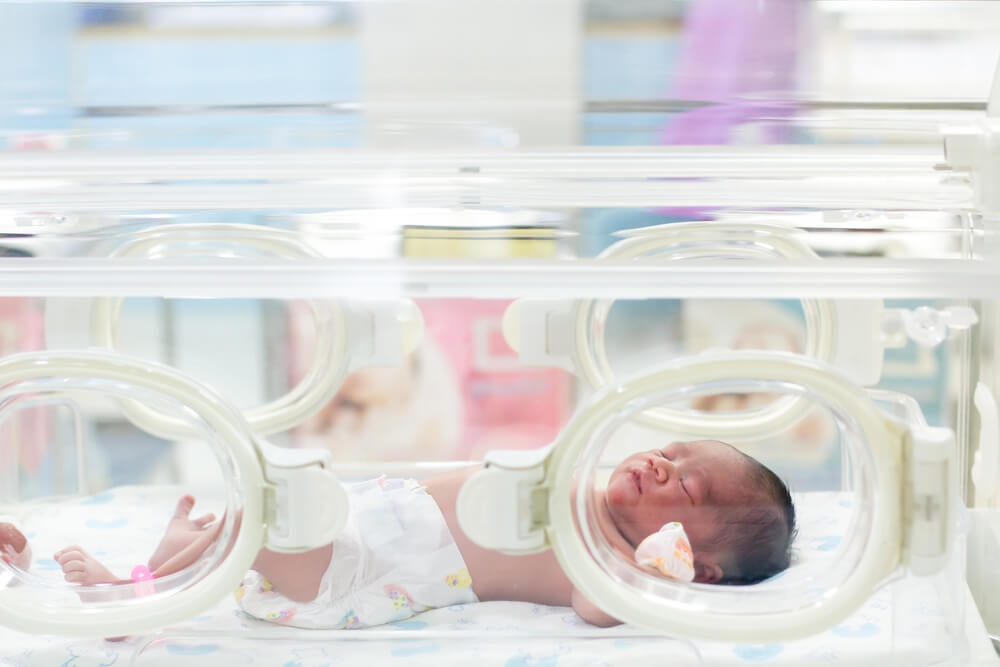
Premature Baby Everything You Need To Know Post Delivery
1 Jul 2022 | 4 min Read
Tinystep
Author | 2574 Articles
Giving birth to a premature baby can raise a number of questions. The uncertainties of your baby not being able to pull through clouds your mind. It is normal for mother’s to fear this dreadful happening. Premature births are common and there has been a higher rate of survival among such babies. Doctors and medicine have made these miracles happen through the years.
Babies are considered to be premature when they are born before completing a term of 37 weeks.A baby that is born on or around the 22nd week is unlikely to survive. Babies between the age of 28-31 weeks of prematurity are likely to have long-term disorders or illnesses, so ensure that they are treated at the earliest.
In order for you and your baby to stay healthy, keep these pointers in mind.
1. As soon as you deliver your baby, the doctors are likely to take your premature baby into incubation, away from you before you can even see them. Do not take this to be wrong, as this is in the best interest of your baby’s health.
2. You might not be able to touch or feed your baby until the doctors permit it. Stay strong until your baby is in the safe zone, with no threat to his/her health, and you will have the joy of holding your baby in no time.
3. Your baby’s head might be distinctly bigger than the rest of their body. This is normal. Over a few weeks, it will grow into a perfect, proportionate shape.
4. In the immense fear of your baby’s condition, you might forget to take care of your needs. Do not ignore your aches and pains. Be sure to see a therapist if need be. You are carrying an immense load of emotions on your shoulder, so try and lighten it by talking to a psychiatrist.
5. You are more likely to get discharged from the hospital faster than your baby. You can visit your baby in the hospital umpteen number of times. Know that your baby is in good hands.
6. Your doctor might advise you against breastfeeding or bottle feeding your baby. Ask your doctor about the best means to feed them and follow this until they say otherwise.
7. Tubes and pipes will be fixed to your baby, running through her nose and mouth. The sight of tubes through their veins might scare you, but your baby needs to be kept under keen surveillance. Once this is done, you will have them in your arms.
8. Physical contact with your baby depends on the level of prematurity. A mother who has given birth to a baby that is 32-37 weeks premature, will be allowed to have skin contact with the baby. Touching your baby or caressing them, or even holding their hand can help soothe both you and your baby.
9. Your baby is still not fully developed, which means their skin might appear transparent, and their veins and blood vessels might be visible. In time your baby will look like a typical newborn.
10. Your baby will cry softly, their features might appear sharper than other babies who have comparatively rounder features. He/she may even have difficulty in breathing, and this is mostly because of the underdeveloped respiratory organs. As long as they are in the hospital and under the care of the doctors and nurses, you need not worry.
Ensure that you continue to maintain physical contact with your child while under care (only if the doctor allows it). Sing and talk to your baby from time to time. You can start to breastfeed your baby as soon as the doctor says you can. Once your baby is discharged from the hospital, there is nothing much you need to be worried about, unless advised otherwise by your doctor.
A


Suggestions offered by doctors on BabyChakra are of advisory nature i.e., for educational and informational purposes only. Content posted on, created for, or compiled by BabyChakra is not intended or designed to replace your doctor's independent judgment about any symptom, condition, or the appropriateness or risks of a procedure or treatment for a given person.
